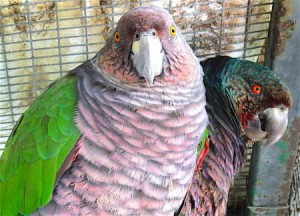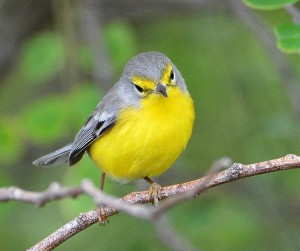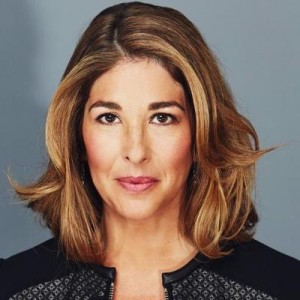
Bird Notes, Part 2: Of Small Islands, Hurricanes and Opportunity Grabbers
April 16th, 2018
This is about the other side of the Caribbean. It’s not entirely about birds – it is more about humans, and what we call “natural disasters” (although they are quite unnatural, these days, since they are a consequence of humans’ actions). I would like to discuss two tiny islands, specifically. Quite frankly, these kinds of situations, in various permutations, could apply to many others. It’s a fragile world we live in, and none seems more fragile than our Caribbean.
Well, once upon a time (last year, in fact) there was a wave of the above-mentioned natural disasters: two hurricanes named Miss Irma and Miss Maria. In Texas, residents were paddling around in the floods of Houston caused by Mr. Harvey.
So, now: Have you ever heard of Disaster Capitalism? I believe the term was first coined by Naomi Klein, whose 2007 book The Shock Doctrine outlined the concept. Disasters (even conflicts) are good for business, Ms. Klein suggests. Seizing the moment, governments (and, I would add, interested individuals from outside, especially coming to developing countries) force their form of capitalism on populations and infrastructures that are demoralised and weakened by whatever the disaster. Some groups profit very nicely out of this; the majority of the people do not. The author has been accused of over-simplifying, it is true. And yet, how this idea has rung a loud bell, in the wake of last year’s hurricanes. Before that, in this region, the aftermath of the Haitian earthquake of 2010 comes to mind, when there was a virtual stampede of organisations and individuals who did not all have the welfare of the people in the forefront of their minds.
Ah, but these strangers (for, often, we do not know anything about them) all give the impression that they are knights in shining armour. “Here we are!” they cry. “We have come to rescue you! We are your saviours!” Very often, local politicians’ eyes will light up with gratitude…
Off we go to Dominica, and Barbuda. And yes, in case you were wondering, birds do have a part to play in these stories.
Dominica, the “Nature Island,” is rugged, undeveloped and is (or was) very green and rich in biodiversity (meaning that a wide range of flora and fauna lived there). A particularly precious creature to Dominicans is their National Bird, the Imperial Parrot or Sisserou – depicted on the national flag. Hurricane Maria, a direct hit on the island, left tree trunks piled up in small village streets, hillsides stripped bare, and literally hundreds of landslides. The landscape was transformed overnight into something approaching the post-apocalyptic scenes in The Road.

Rescued and rehabilitated Imperial Parrot (Sisserou) on the right; 18 year old Sisserou female on the left. Also a rescue (having fallen from the nest), this female successfully reproduced in captivity in Dominica, in 2010. (photo by Stephen Durand)
The Sisserou is a shy bird. Scientists and conservationists struggled with their own personal traumas and searched for sightings, working in very challenging conditions. The Forestry, Wildlife and Parks Division of Dominica’s Ministry of Agriculture was devastated, not only by the storm but by the theft of equipment. Yes, your regular criminals take advantage of disasters too. Then, as parrots in various stages of rehab, mostly rescued from Maria, sat quietly in their aviary, there was a glimmer of light in the east. Enter a German parrot-breeding organisation (supported by at least one local public official). They whisked away two Sisserous and ten Jackos (Red-Necked Parrots, who are more resilient) to Germany, almost overnight. Read more here.
“It’s an emergency! We know best! We are rescuing these beautiful birds! You will thank us later!” cry our heroes.
Then there is the other cry that goes up, as in the case of tiny Barbuda, over which Hurricane Irma rampaged: “Let’s rebuild! Let’s build back better!”
Once again, local governments buy into all this quite eagerly. After all, money is to be made, one way or the other. In fact, the Prime Minister of Antigua and Barbuda, enlivened by his recent re-election at the polls (although his party lost the Barbuda seat), has gone one step further and vowed to repeal the law that allowed the people of Barbuda to communally own the island. His government will basically sell off the communal land of Barbuda, owned by the people for 200 years or more, and the government is in a hurry to repeal the law. Why? So that various business interests can move in, buy up land and make money. Indeed, the process has already begun; tracts of wetlands have been destroyed to build an international airport (this construction allegedly began soon after the passage of Irma). Developers. who have been hovering in the wings – an American movie star, Chinese companies – are itching to build their tourism complexes and high rises and own a piece of “paradise.”
Now, Barbudan activists are taking their case to the Commonwealth leaders meeting this week.

The Barbuda Warbler is endemic to the tiny island of Barbuda, which was ravaged by Hurricane Irma and is now to be sold off to the highest bidder. (Photo: Ted Eubanks)
Nothing wrong with making money, you might say – and I agree. However, don’t pretend that you are doing it all because you love the people of Barbuda – poor things, they have suffered so much. Let me build a gated community and condominiums, where they used to grow their crops. Let’s have a marina here, where the Magnificent Frigate Birds used to breed. Let’s chop down all this bush to build a nice hotel, where the remarkably resilient, surviving populations of the endemic Barbuda Warbler have been seen and recorded by ornithologists.
Am I dramatising? Perhaps, just a little. Not much. You know, it’s not these foreigners who are really to blame. Our local politicians allow disaster capitalism to happen.
We all know the JFK quote: “There’s an opportunity in every crisis” – based on an erroneous interpretation of a Chinese character, by the way. Be that as it may, I would like to ask: Who cares about the people? And who cares about the birds?
Looks like we will all have to fend for ourselves. The disaster capitalists are in town.
Tags: Antigua and Barbuda, Barbuda, biodiversity, Caribbean, Climate Change, disaster, disaster capitalism, Dominica, earthquake, entrepreneurs, Hurricane Maria, hurricanes, Imperial Parrot, Naomi Klein, natural disaster, Sisserou, Small Island Developing States, The Shock Doctrine, tourism
The Gleaner reserves the right not to publish comments that may be deemed libelous, derogatory or indecent.
To respond to The Gleaner please use the feedback form.
- We Are the Zoomers
- Living Online with Humans and Birds: NAOC 2020
- Human Trafficking and the Problem of Public Education
- Down Memory Lane
- Are We Ready to Recover from COVID-19?
- Road Safety Matters: Is Your Vehicle Safe?
- Sexual Harassment, Me Too, and the Minister’s Disturbing Giggle
- The Vulnerable Senior Citizens, Private Care Homes and COVID-19
- A Muddle Over Masks
- Here is Something Life-Saving You Can Do: Give Blood!



